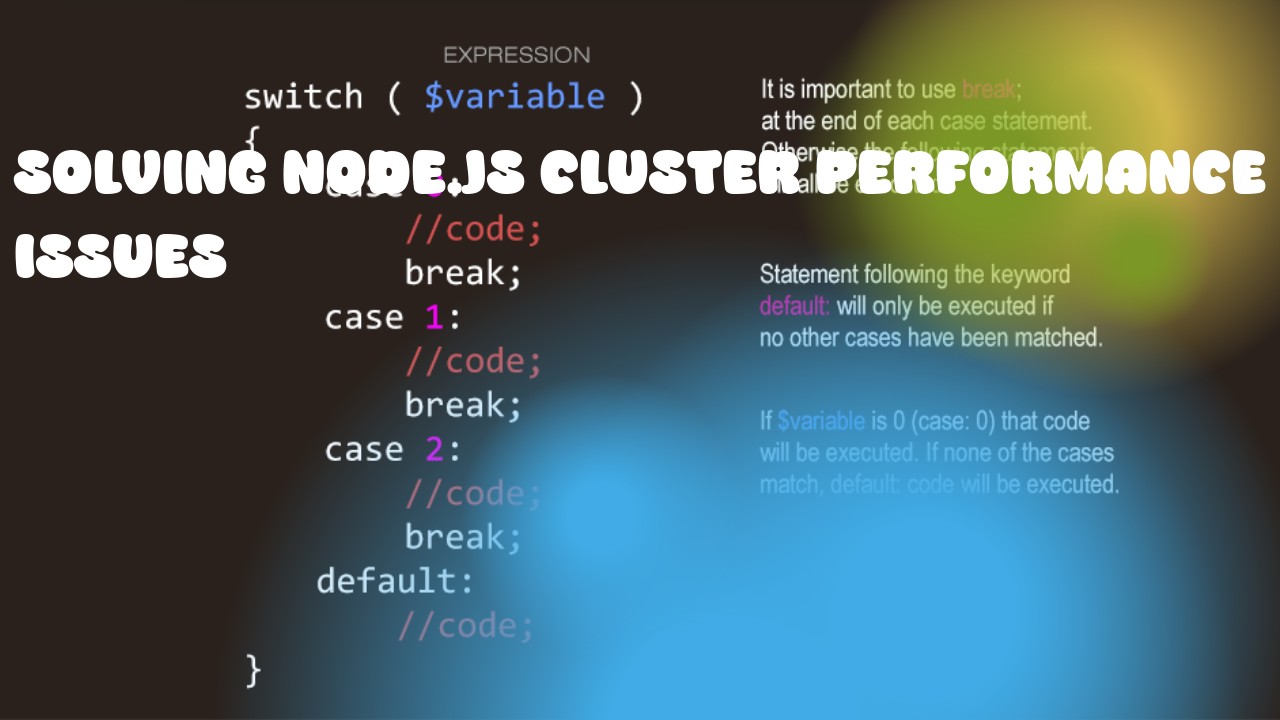Node.js clustering allows you to create multiple worker processes that share the same server port, which can improve performance by taking advantage of multi-core processors. However, it can also introduce some challenges if not implemented properly. Here are some tips for solving common issues with Node.js clustering:
- Isolate Worker Processes: Each worker process should have its own isolated application context. This is done using the worker_threads module in node 12 and later.
const { Worker, isMainThread, parentPort } = require('worker_threads');
if (IsMainThread) {
for (let i = 0; i < numCPUs; i++) {
new Worker(__filename);
}
} else {
// the worker code.
}
-
Use IPC for Communication: When communicating between the master and workers, use inter-process communication (IPC) instead of shared memory. This will ensure that each process has its own private copy of data, which can reduce synchronization overhead.
-
Use Shared Memory Efficiently: Instead of using shared memory to pass large amounts of data between processes, consider using a database or caching system. this will reduce the amount of inter-process communication and improve performance.
-
Properly Terminate Workers: When a worker process encounters an error or needs to exit, it should gracefully terminate instead of crashing the entire application. This can be done by listening for events such as 'uncaughtException' and 'SIGTERM'.
-
Use Load Balancing: Rather than simply distributing incoming requests across all available workers, consider using a load balancing algorithm that takes into account the current load and worker availability. this will ensure that the overall performance of the application is maximized.

